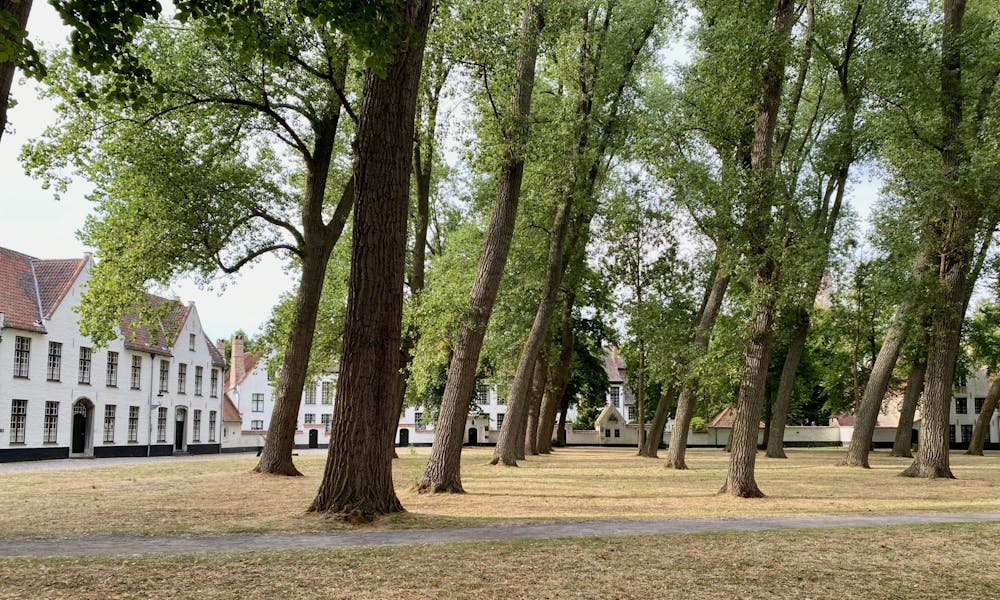Some spring day, a close friend told me that I’m very comfortable being the exception. She meant it as a compliment — that I’m confident enough in myself to find and follow my own path. I understood it as such. But it has also been haunting me since I heard her speak it. It’s an idea I’ve found myself returning to quite often, whenever not distracted by the day, or music, or some writing.
A mid-July Saturday, sitting in the hot Paris metro, alone on the way home from a long day and some drinks with another friend, I returned to those spring words. “Exception.” It made me think of my understanding of the nuanced difference between French and English cognates: “exceptionnel” versus “exceptional,” respectively.
In the United States, I’ve found that something exceptional is often something praised, elevated above the rest, separated by its merit. In France, I found “exceptionnel” most often on makeshift signs posted on storefront doors to announce an unexpected closure, a variation from the typical business hours, something out of the ordinary. In this, I saw a subtle difference in the emphasis of each adjective.
Alfred de Musset’s “The Story of a White Blackbird” starts with a demonstration of this nuance: in translation, it begins, “How glorious it is — and also how painful — to be an exception.” It’s a translation more general than the French: “Qu’il est glorieux, mais qu’il est pénible d’être en ce monde un merle exceptionnel.” The original is focused more on the white blackbird differing among the blackbirds of the world while the translation expands to any sort of exception — not a specific thing which is “exceptionnel.” In the English, an exception is something to be, all on its own. In the French, it is a separation from the rest, from the other birds. Either way, the exception carries a double-edged sword — glory and pain. How, why, do such things, even in less extremes, coexist?
This is what made my friend’s comment somewhat haunting. Being the exception is a distinction: it aggrandizes and alienates at once. For most of my life, I’ve felt like the exception in some way. I can only wonder how long others have seen me as such. Only recently have I noticed the double-sidedness of this whole affair.
In trying to resolve it, it would be so easy to get into how my identity has separated me. It’s an exercise I already know quite well, but it is not the most interesting one at this point. Rather, I would prefer to focus on the act at the root of the matter. See, I’ve found the glory and pain of my exceptions in being rootless.
Roots anchor: they keep a plant in place like an anchor does a ship. In this, there is both limitation and stability. A tree gains a foundation from which to rise into the sky, but it will never scrape a different sky. While anchored, a ship will not drift out, lost to the waves, but it also cannot sail the seas.
To be without roots, unanchored, inverts all this: the tree might possibly travel if it could even grow; the ships would sail, but away from the harbor’s safety.

I left Mexico at four years old. I left behind family, friends. I left behind the soil on which I was born, the streets I crossed in a stroller, the homes I knew. I left behind a language. We, my family, cut off a life waiting to be lived, and I grafted on another one. Somehow, I was supposed to find all that again in Ohio. I don’t think I truly, fully did. Certain parts of my roots cannot leave Mexico. Both places now feel both foreign and homely at once.
See, to immigrate is to consciously unroot oneself. But it’s not an easy chore; it is like repotting a flower plant to a more suitable container. It is messy. It is tough with some roots hanging on more strongly than others. It is risky: the flower plant may take a long time to form afresh its roots in the new earth, maybe too long for it to survive fully intact. Except, in my case, I’ve found that people don’t grow roots as easily. Sure, we may grow from our roots, but once uprooted, it’s hard to know where to place roots down again. Somehow, people are able to root in more than one place at once. At least, I’ve had to do so. It’s not the same as unified roots.
The result is a sense of in-betweenness — split across places, lives, cultures. I am an exception in some, divergent ways in both places.
See, that’s the pain of the exceptional. One will always be othered. There will always be differences to be felt, even if small.

You’ll spend days on end in a second or third or fourth language, forgoing the first, only to call home, feel the ease and comfort of once again speaking and hearing the first language and yet also need correcting on its finer points. Imagine not being able to call any one language your own — not knowing which is your true essential voice.
You’ll move from one old place to a new one or visit another, and never will you be totally sure of how to answer where home is. You know the many places where your family is, where you spend certain months of the year, where you keep certain memories. But it’s unclear where you’re from; the answer is expected to be only one place, but somehow it is all and none of the above.
To be unmoored: that is the pain of the exception. To be untethered, the glory.
Being untethered has let me live more than once. It is the ship allowed to sail, to explore. Each uprooting has been a chance to rediscover myself. And new roots can often provoke new unexpected growth. Now, about two summers ago, I repotted an anthurium plant that hadn’t flowered for years. Now, two summers later, tens upon tens of flowers have bloomed and dried and been replaced.
I once asked my mom how likely it would be for me to still attend Princeton had we not left Mexico. She said, not very likely. It wasn’t a matter of merit or possibility or opportunity. Princeton and schools like it simply weren’t visible on our horizon from there. Now, I wouldn’t say I never previously flourished, but it’s been in these last few years — during this latest uprooting to Princeton — that I have felt a new vigor. I cannot possibly imagine a life without the last few years as they were. A blossoming possible only due to new roots.
Becoming untethered once teaches you how to uproot yourself, again and again.
I may still question where my voice at its most essential lies, but that’s only because I’ve gained so many ways to speak. I’ve been allowed to enter and engage the world — to see it — from so many different gates. When lost in one language, when it lacks a description for what I see or feel or think, I can find myself in another. I get to exist in between all these worlds and enjoy the parts of each that alienate the least. I can dream and try in one and then find refuge in another.
And of course, that is not only a paragraph about the languages I’ve learned. It’s about all the communities I’ve found — those based around language forming only a fraction.
Imagine a tree that gets to scrape many different skies, or a ship that can dock in many harbors at once. It’s pretty glorious, isn’t it? Even if it demands so much of our imagination, so much of our understanding of being in this world, so much stretching so as to cause pain. Such a tree, such a ship, they’re exceptions.
So am I actually very comfortable being an exception? I don’t know. I don’t think comfort is much of a consideration when the exception has so often been my experience — when it has been so essential.
Maybe that is what is haunting in this world: having to face its glories and its pains — little or large — and then still being left with a whole life to try and untangle it all.
José Pablo Fernández García is a senior from Ohio and a head editor for The Prospect at the ‘Prince.’ He can be reached at jpgarcia[at]princeton.edu.
Self essays at The Prospect give our writers and guest contributors the opportunity to share their perspectives. This essay reflects the views and lived experiences of the author. If you would like to submit a Self essay, contact us at prospect[at]dailyprincetonian.com.








